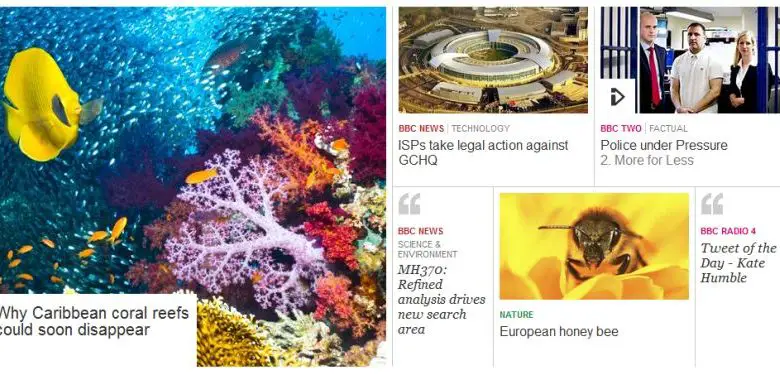
Working for the BBC: making accessible technology better
In our series of interviews with various disabled BBC employees across the business, we delve into what it’s really like working there.
You can find the right job for you by visiting the BBC’s careers site, but here, we talk to BBC Access Technology Manager Paul Bepey, about his passion for technology, his plans for the future and the role he plays in making sure the BBC is open and accessible to all.
Name: Paul Bepey
Role: BBC Access Technology Manager
Nature of Impairment: Totally blind
Follow Me: @pmbepey
Can you tell us about the journey that has led you to your current role at the BBC?
I didn’t come from a typical accessibility background, but due to the nature of my disability, I’ve always been passionate about accessibility and assistive technology. I first became involved in assistive technology whilst working in Greenwich, looking at designs for an internal intranet system. From there, I moved into creating strategies and policies for students who had an accessibility need, and subsequently from there moved to the BBC.
What do you do for the BBC now, and what’s a typical day look like for you?
 I lead the team responsible for working with all technologies used internally at the BBC, making sure that they’re as accessible as possible. No two days are ever the same! I meet with various different people: stakeholders, technical teams and project managers etc, to ensure that accessibility is ‘baked’ into their product from the outset, and where it’s not, I strive to resolve it.
I lead the team responsible for working with all technologies used internally at the BBC, making sure that they’re as accessible as possible. No two days are ever the same! I meet with various different people: stakeholders, technical teams and project managers etc, to ensure that accessibility is ‘baked’ into their product from the outset, and where it’s not, I strive to resolve it.
I also chair BBC Ability, which is the BBC’s disabled staff forum. Our mission is to remove barriers faced by disabled people. We do this by encouraging:
- the career aspirations of disabled colleagues
- the BBC to include disabled people amongst its workforce to an extent that reflects levels of disability amongst the UK population
- acceptance, inclusion and celebration of our individual identities and cultures
- positive and constructive attitudes, behaviors and policies towards disabled people
- honest, fair and multi-dimensional portrayals of disability by actors who are actually disabled
- contact, support and friendship among disabled workers at the BBC.
What is the secret to your personal success?
Having the passion to push the boundaries of technology to make them better for everyone that uses them, and being able to communicate with people at all levels of the business. This could be applied to any area – it’s all about passion, confidence and determination.
What do you like about the BBC and working for it?
The BBC is a wide and diverse organisation and, from my viewpoint as someone with a disability, I’ve not worked for any other organisation with as many services and teams aimed at helping disabled people. For example, there is:
- The Access Unit, which helps to implement reasonable adjustments, and provides facilitators like BSL sign language.
- Many different types of assistive technology.
- BBC Ability, as mentioned above, the disabled employee forum and network, offering invaluable peer support.
- BBC Academy, which offers training and development for a range of skills.
How does your impairment affect your ability to perform well in your job, and how have you overcome barriers?
Thanks to all the services available, my impairment hasn’t had any major effect on my performance at work as I have been able to work with others to overcome any barriers.
Which of the BBC services, such as the Access Unit and BBC Ability Forum, have you used to help you at work, and how did they help you?
I joined the BBC Ability forum in my first week as my then line manager made me aware of the group. I regularly use the Access Unit, which provides invaluable assistance with the visual elements of my job.
What are your career ambitions for the next five years?
I have plans for making our internal accessible and assistive technologies even better – it’s something I am passionate about.
From personal experience, what do you think are the main false perceptions around disability and employment, especially in the media and technology, and how can someone circumvent these perceptions?
There seems to be a myth that employing individuals with disabilities is costly to an organisation or team. There needs to be greater awareness to dispel this myth. For example, most assistive technology licenses for programmes like JAWS, Zoomtext and TextHelp, are covered by a central pool of money at the BBC and not by individual team budgets.
Finally, what advice would you give to individuals with disabilities wishing to come and work at the BBC or in media?
I encourage anybody to apply and make the jump at a time that is right to them. The BBC offers a huge range of services to employees, certainly more than I’ve seen at most organisations.
Our Diversity Centre, BBC Ability forum and accessibility teams are always on-hand, so make the most of them. The BBC Ability community works extremely well and makes everyone feel welcome.
- Apply for a job via the bbc.co.uk/careers website now!
- Discuss any disability concerns at the interview.
- Be bold!
- Be genuine!
- And be upfront about your needs.
By Disability Horizons
Check out…
• Working for the BBC: could you be the next employee?
• BBC: new disabled talent wanted
• 5 reasons why disabled people make awesome BFFs
Got a story to share or have a question? Get in touch by messaging us on Facebook, tweeting us @DHorizons, emailing us at editor@disabilityhorizons.com or leaving your comments below.